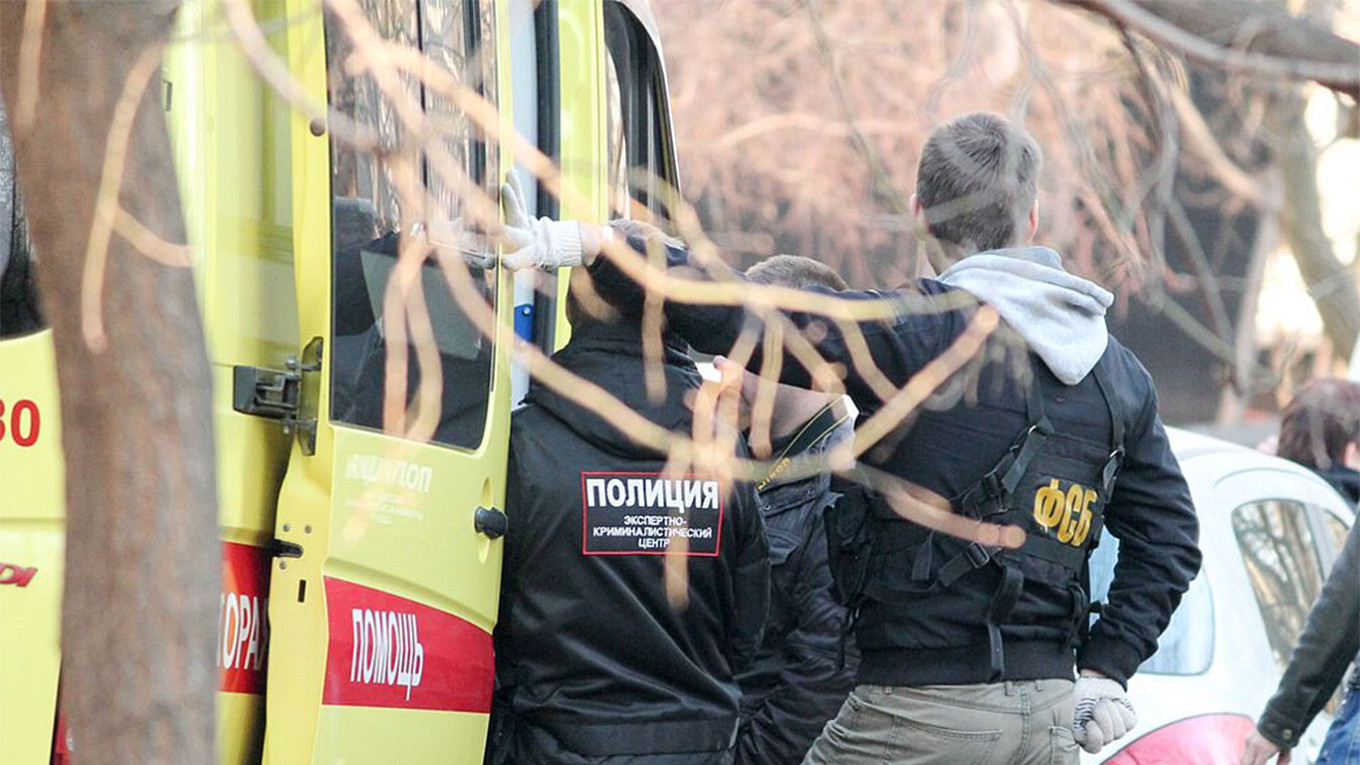So far repressions in Russia have only affected people who somehow stood out as citizens and individuals — people who were engaged in political activities or activism, or had the courage to express their opinion on Facebook. People who were not political, who did not express their position, who went to work, got a salary and kept silent were generally not affected.
But the war is not unfolding according to the scenario planned by the Russian president and his cronies. The reckless scheme to take Kyiv, put Zelensky in a cage, drive him through the streets to be tried by the international court of justice in the Donetsk People’s Republic Now failed.
So, I think that in the near future the security services will gradually turn from individual acts of political repression to mass totalitarian repression.
Maybe the scale will not at the level it was under Stalin, but it certainly will not be the same as in the 1960s and 1970s when only the dissident movement was suppressed.
Something happened recently that truly reminded me of the 1930s, and not metaphorically. At a meeting with Putin, the head of Rosfinmonitoring discussed possible reprisals against doctors who are recommending foreign-made drugs to their patients. There is information, he said, that in thirty regions of Russia doctors operate these schemes. He promised that the FSB will be brought in to work on the case. After people take Western-made drugs, their minds will apparently change and they will become a fifth column.
All of this tells us that there will be a new “doctors’ plot” like the one brought against hundreds of mostly Jewish physicians in Moscow under Stalin. This time it would affect at least thirty regions.
There are a lot of parallels. In the 1940s, after the war, Jewish doctors were not only accused of poisoning and killing Soviet leaders, they were accused of doing it on order from and in close cooperation with Joint, a charitable organization that has helped Jews all over the world throughout the 20th century. The only difference is that it was a Jewish conspiracy then and is a conspiracy of Western pharmaceutical companies now. You hear someone prescribing Bayer aspirin — what more proof do you need?
There is already unprecedented pressure on lawyers. Ivan Pavlov and his entire team, who specialized in espionage and treason cases, were forced to emigrate about a year ago. Now they’ve arrested Dmitry Talantov, who continued to work on these cases, including for the defense of journalist Ivan Safronov. This looks like the beginning of a mass secret services campaign against lawyers. Unfortunately, the legal community has yet to show unity.
The security services continue their repressions against the elites. Until 2012, the punishment for disloyalty or massive corruption was usually just loss of a job. But then this unspoken pact was broken, and in recent years repression has intensified. Even people who are at arm's length from Putin and who serve him loyally are being subjected to unprecedented pressure. Central Bank head Elvira Nabiullina was targeted with a compromising video of her husband, Yaroslav Kuzminov. Oleg Mitvol was recently detained in Vnukovo, just as he seemed to be about to fly to his happy European future. He was not just some faceless official. He was the prefect of one of Moscow's districts and did any public relations task requested by the Kremlin. Now he's in jail.
Even if the war ends, there are no good scenarios in store for Putin and Russia. Sanctions will not be lifted, and international isolation will not end. Under these conditions, it is clear that repressions against their own elites will intensify in order to keep them in a state of submission and fear.
Unfortunately, nothing good awaits those who have left Russia either. The Russian diaspora is in the center of attention of the Russian security services. And this attention will not abate.
There will be more foreign agents and more criminal cases. And if someone has property or money in their accounts, they will come for that too. Everyone who emigrated for political reasons should register their property with another person; you can get a general power of attorney from the consulate.
That said, we know that there have recently been major expulsions from almost all Russian embassies in Western and Southern Europe. This means that the professional staffs of the intelligence services are now greatly reduced. But the Russian state still has enormous resources and means of intimidation. For example, they can collect information through their other organizations, such as Rossotrudnichestvo (the Federal Agency for CIS Affairs, Compatriots Living Abroad and International Humanitarian Cooperation). Everyone should be prepared for this.
In the emigrant community there may be agents recruited and informants. It is not clear what to do about it; we had very bad experience with this in the past. Russian emigrants saw everyone as agents and suffered from “spy mania.” As a result there was constant infighting. No one trusted anyone, and it was impossible to establish normal, healthy cooperation. We are between a rock and a hard place, and we must learn how to navigate through the situation: on the one hand, to be vigilant, and on the other, not to let an obsession with spies and suspicion overwhelm us.
We have all read books about the future where wars are fought in cyberspace, drones destroy other enemy drones, and one side’s missiles destroy the other side’s missiles in outer space. But what we are faced with is old and unsophisticated but very effective physical methods of suppressing people. No virtual realities, no cyber-worlds. Just fear, attempts at intimidation, pressure on families, confiscation of property and imprisonment.
This article was originally published in Russian in Sapere Aude.
A Message from The Moscow Times:
Dear readers,
We are facing unprecedented challenges. Russia's Prosecutor General's Office has designated The Moscow Times as an "undesirable" organization, criminalizing our work and putting our staff at risk of prosecution. This follows our earlier unjust labeling as a "foreign agent."
These actions are direct attempts to silence independent journalism in Russia. The authorities claim our work "discredits the decisions of the Russian leadership." We see things differently: we strive to provide accurate, unbiased reporting on Russia.
We, the journalists of The Moscow Times, refuse to be silenced. But to continue our work, we need your help.
Your support, no matter how small, makes a world of difference. If you can, please support us monthly starting from just $2. It's quick to set up, and every contribution makes a significant impact.
By supporting The Moscow Times, you're defending open, independent journalism in the face of repression. Thank you for standing with us.
Remind me later.








